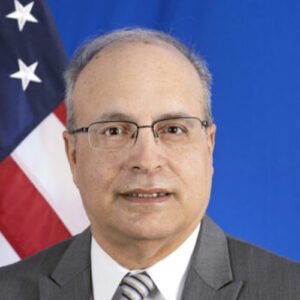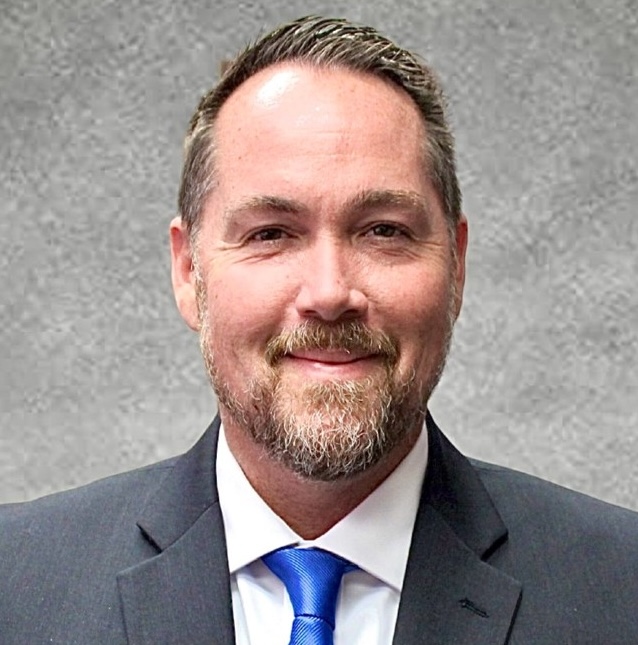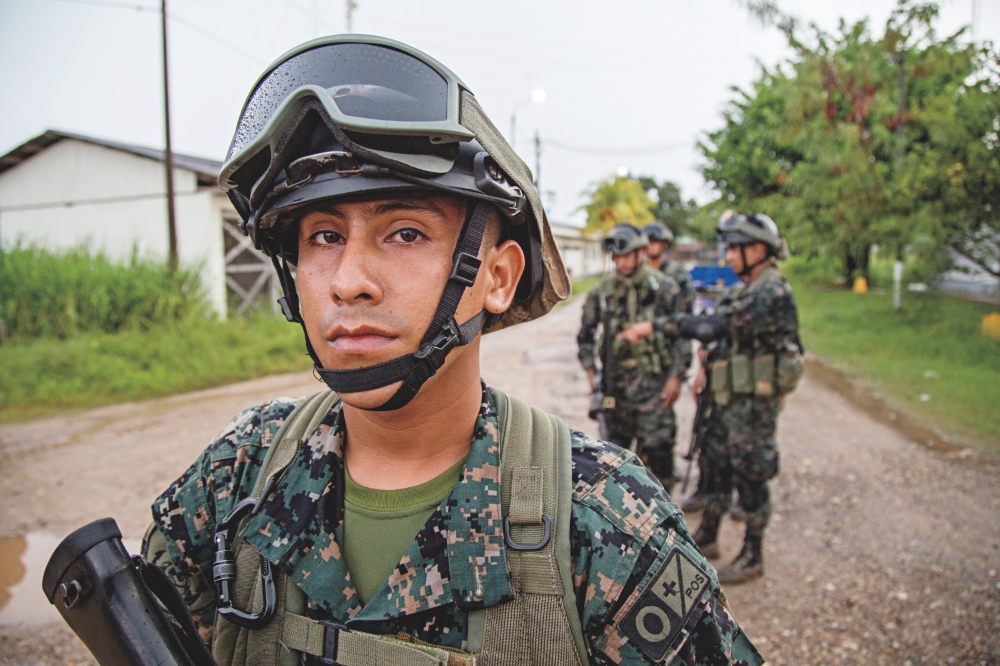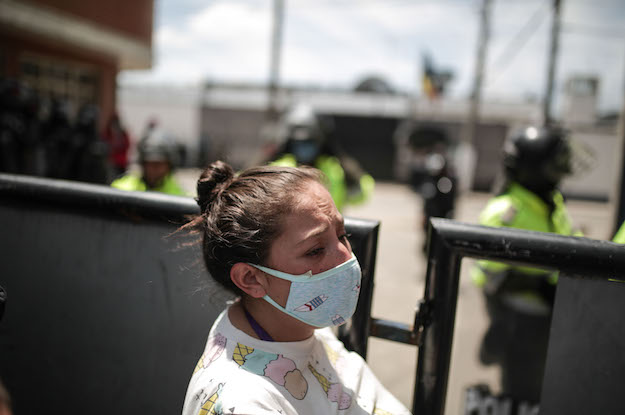This article is adapted from AQ’s special report on Latin America’s armed forces | Leer en español
With few exceptions, soldiers have been absent from Latin American political scene in the 21st century. That seemed to change in the final months of 2019.
Beginning in September, protests broke out in countries including Ecuador, Peru, Chile and Bolivia. As demonstrations grew violent, some of these countries’ presidents appeared in front of TV cameras with senior members of the armed forces in an effort to show they were in control. Peruvian President Martín Vizcarra posed with military leaders while denouncing the opposition-led Congress’ call for his resignation. Ecuadorian President Lenín Moreno and Chilean President Sebastián Piñera announced states of emergency while surrounded by uniformed military personnel. In Bolivia, military leadership “suggested” that President Evo Morales’ resign after he publicly urged the military to defend his administration from growing unrest. Morales resigned in early November.
In response to these events, as well as increased visibility of the military in Brazil, Venezuela and some Central American countries, several scholars and journalists were quick to declare a return of militarism in Latin America. Some even suggested militaries were acting in a way similar to the military-led authoritarian regimes of the Cold War era. But we do not believe that is the case, at least for now. Based on our interviews and research, Latin American militaries today are generally reluctant to plunge into the middle of contested domestic politics precisely because of their disastrous experiences in the not-so-distant past.
Instead, it seems that, amid a continent-wide crisis of democratic governance, civilian leaders are once again seeking legitimacy and strength from the armed forces — which polls show are among the most trusted institutions in numerous countries around the region. Presidents have also been eager to show they have full support from an institution that was in the past an agent of regime change. These actions are consistent with other moments since the region’s great wave of re-democratization in the 1980s in which civilian leaders have leaned on the armed forces in times of crisis. As such they do not seem to herald a return of generals to power — although they do raise long-unanswered questions about the proper role of militaries in Latin America, where they are most effective, and how they will act in the 21st century.
Back to barracks
Historically, Latin American militaries played a dominant role in the political affairs of a number of countries. At various times throughout the 19th and 20th centuries, militaries seized power in an effort to “save” them from threats to domestic political stability. Prior to the 1960s, military coups more often than not served as stabilizing and transitional events — brief interventions followed by a return to democracy. It was not until the 1960s — when Brazil’s Escola Superior de Guerra (National War College) established its “national security doctrine” — that the notion that militaries should govern directly became more widespread. As a result, military personnel and culture was conditioned to govern. This idea spread throughout much of the region, although some, like Mexico, were notably spared. By 1977, all but four Latin American countries were dictatorships.
However, in most cases, this military involvement in governance backfired. Massive human rights violations, polarized societies, and frequent policy failures characterized military rule. By 1990, Cuba was the region’s only remaining true dictatorship. Militaries frequently left power disgraced and at odds with society, facing disrepute and even jail time. With the consolidation of democracy as the dominant political model, armed forces found themselves estranged from both society and newly minted civilian leaders. The new rulers often sought to redefine the roles of military institutions. Several domestic and international constraints (such as the Inter-American Democratic Charter), along with institutional reforms, shielded democracies from military interference.
This moment was in many ways historic. Not since the beginning of the 20th century was the military, at least in South America, viewed as not having the political sway it once had. In addition to constraints on their political power, militaries were generally suspicious of getting involved for fear of consequences to their institution. The question now is whether the three decades of relative absence from politics is a permanent feature of Latin American politics or is it an anomaly that is now beginning to reverse.
Today, many Latin American militaries continue to search for purpose; uncertain of their identity, their mission, and place in society. Despite numerous discussions and defense white papers regarding their potential missions, many militaries seem disoriented and, at times, not fully appreciated by their civilian masters. In some cases, as in Argentina and Uruguay, they have been besieged by deep budget cuts and pursued by the justice system for human rights violations committed during the period of military rule.
The absence of interstate conflict in Latin America, the decline of domestic insurgencies and the mostly criminal nature of contemporary domestic security challenges have led some scholars to call for the dissolution of conventional militaries altogether, in favor of civil defense forces like those of Costa Rica or Panama. Military leaders and observers, however, argue that there is still a relevant role today for conventional military institutions. Challenges to contemporary military identity arise from the shifting balance (and tension) between focusing on internal stability versus external security as well as distinguishing between traditional and non-traditional military activities.
For example, Argentina, Brazil, El Salvador, Peru and Uruguay have engaged their troops in peacekeeping missions in countries such as Burundi, Cyprus, Democratic Republic of Congo, Haiti, Lebanon, and Sudan. Also of note, the Dominican Republic, El Salvador, Honduras and Nicaragua deployed troops to support U.S.-led operations in Iraq starting in 2003. Furthermore, some contend that the mere presence of conventional militaries serves as a credible deterrent to interstate conflict. Meanwhile, civilian and military leaders have sometimes ordered their militaries, often reluctantly, into supporting domestic law enforcement efforts that address increased domestic insecurity caused by criminal activity. Others have pushed their militaries into supporting environmental remediation efforts, providing humanitarian and disaster relief and combating new issues related to cyberspace.
There were, of course, exceptions such as the military uprisings in Argentina (late 1980s), coups (or coup attempts) in Venezuela (1992, 2002), Paraguay (1996), Ecuador (2000) and Honduras (2009); and military supported self-coups in Peru (1992) and Guatemala (1993). But during more than three decades of uneven and sometimes tumultuous democratic rule, militaries largely opted to resist invitations and temptations to intervene when social discontent and mobilization threatened to undermine order and democratic rule.
Instead, they looked inward, taking up non-traditional tasks for which they often felt unprepared. For example, civilian leaders deployed militaries in Brazil, Ecuador, El Salvador, Guatemala, Honduras, and Mexico to combat high levels of criminal activity. In Argentina, Ecuador and Peru, naval forces have engaged in combating illegal and unregulated fishing. Brazilian and Mexican military personnel took on missions to help save sea turtles and aid in reforestation efforts. In Uruguay, the army deployed to pick up trash after the country’s sanitation workers went on strike. Many militaries are also engaged in natural disaster response, infrastructure projects or administration of social services. These activities have helped to cultivate an image of militaries vastly in contrast to their past excesses.
Rising trust
In the last few years, as Latin Americans’ faith in democratic institutions generally waned and perceptions of the quality of democratic rule declined significantly, the prestige of armed forces has skyrocketed in many countries. Corruption scandals, persistent levels of poverty, inequality, violence and insecurity, and unresponsive and unaccountable institutions led to a sense among the public that political systems are broken. This is underscored by polling from Americas Barometer that shows the regional level of satisfaction with democracy at 37%, a significant decline from 57% in 2012. The cumulative effect of democratic decay, rising political polarization and dissatisfaction with the political and economic status quo led to the social unrest of the last few months in Bolivia, Ecuador, Chile, Peru and Colombia, to name the most discernible cases.
However, to a large extent the military has restored its standing in society precisely because it stayed out of politics and assumed these non-traditional roles—and performed them to the satisfaction of the general public. Because civilian institutions were unable (or unwilling) to address several social, economic and security challenges, they often turned to militaries as the only institution capable of providing short-term remedies. Whether it is trash collection or prison security in Uruguay, law enforcement roles in Central America, Mexico, and Brazil, the supervision of infrastructure projects in Peru, civic action programs in Central America, or natural disaster response, Latin American militaries have assumed greater responsibility, helping civilian authorities weather short-term crises.
There are two types of civil-military relations that have to different degrees incorporated the armed forces into politics and governance. The first is the revolutionary model, as in Cuba, Nicaragua and Venezuela, where the armed forces are fully involved in most aspects of governance and the economy. They are the bulwark of the regimes, the most trusted and capable institution, committed to the survival of the revolutionary governments. As a result, the armed forces are entrusted to manage strategic sectors of the economy, head government ministries, and even serve as provincial governors, as in the case of Venezuela. Whether for ideology or cooption/corruption, it is very unlikely these militaries will divorce themselves from their current roles.
The other more recent and subtle form of military involvement in politics is the consultative variant where, as in Guatemala and Brazil, very influential retired senior military officers play a critical role advising the president and other civilian political leaders as well as populating senior positions in government ministries, including as ministers. In Guatemala the Association of Military Veterans of Guatemala (AVEMILGUA) founded the National Convergence Party (FCN) that became the banner of President Jimmy Morales. During his government members of AVEMILGUA not only advised but exercised enormous influence over the political neophyte president. The government of President-elect Alejandro Giammattei is following a similar consultative model, but retired military officers are less likely to exercise direct influence over the more seasoned president.
In short, in the last few years an inverse correlation has developed between the capacity and legitimacy of democratic institutions to meet society’s socio-political expectations and the use of the military to serve as a stopgap in support of ineffective civilian institutions. This does not mean that militarism is returning to Latin America, for now. However, if democratic governance and democratically elected civilian leaders continue to fail to meet the expectations of its citizens, then it could leave the door open for military leaders to drag their institutions back into power for long periods. In fact, according to 2018/19 polling conducted by Americas Barometer, the average public support for military coups in Latin America sits at about 39% if responding to high crime and 37% in responding to high corruption. Militaries clearly prefer to stay on the sidelines, but they are also not blind to public opinion.
So the real questions are: Can elected civilian leaders regain the trust of their publics and deliver on the promises of democratic governance? Can militaries escape the pressures of stepping into power during pronounced periods of political instability? We think so, but time will tell.
—
Mora is director of the Kimberly Green Latin American and Caribbean Center and a professor at Florida International University. Fonseca is director of the Gordon Institute for Public Policy and an adjunct professor of politics and international relations at FIU.










